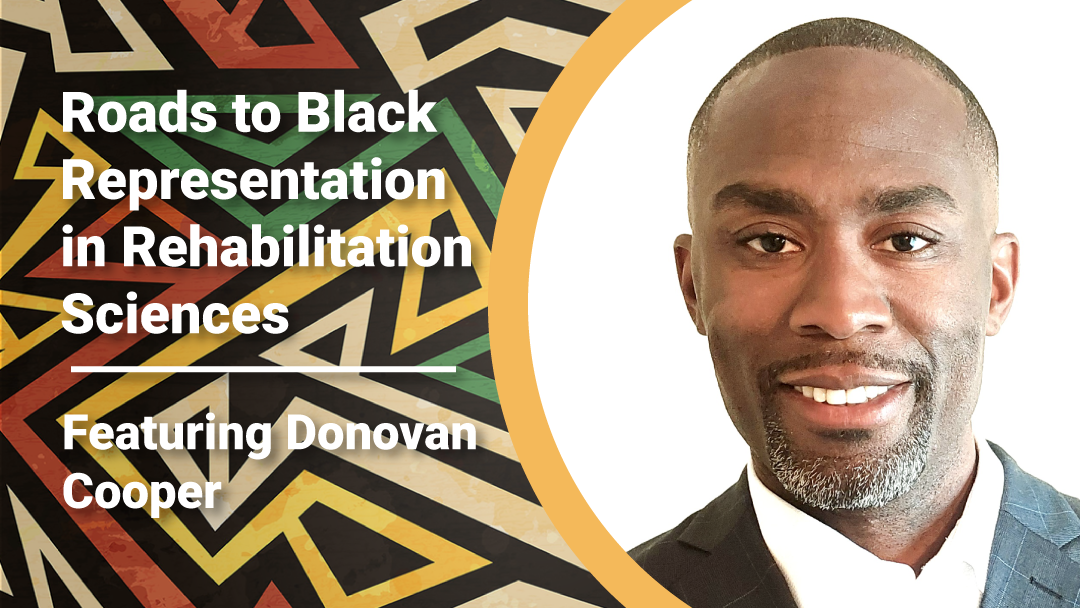Roads to Black representation in rehabilitation science – featuring Donovan Cooper

The Faculty of Health Sciences at McMaster University recognizes the historic and systemic barriers that Black students face in accessing postgraduate educational programs and opportunities. In response, the MSc Programs now include a Facilitated Black Admissions Program (FBAP), specifically designed for individuals who self-identify as Black.
To shed light on the critical importance and impact of this specialized admissions path, FBAP volunteer assessors have provided insights from their professional journeys and discussed the FBAP’s role in shaping the future of healthcare.
Among these assessors is Donovan Cooper, who serves as the Senior Director of Ambulatory Care Services at Holland Bloorview Kids Rehabilitation Hospital. He is a McMaster alumnus and a trained physiotherapist who graduated from the MSc Physiotherapy Program in 2004.
Can you share some key milestones in your career?
Being a Physiotherapist has afforded me a diverse career. My first job following graduation was as an orthopaedic physiotherapist at CBI Health. The role was instrumental in beginning to develop my clinical skillset but also my interpersonal skills, which is equally critical for health care providers.
Next, I transitioned into home & community care working for organizations like Community Rehab and Pace Home Care. In this role, I discovered a passion for helping people in their own environments, which further emphasized the importance of tailoring interventions to meet the specific needs of clients.
When I started my own physiotherapy practice, I had to develop a business plan and foster connections with community physicians. This experience was instrumental in cultivating my business development skills. This sparked a desire to pursue a career in health administration and influence health care delivery more broadly.
I returned to school to complete a master’s degree in health administration at the University of Toronto. I had the opportunity to engage with a diverse group of professional colleagues in the health care space that had a broad range of perspectives. I learned about health care system structures and challenges in Ontario and Canada as a whole. It really shed light on the issue of access to care and that people’s experiences can be different depending on who they are and where they live.
This knowledge helped me in my journey as I took on leadership roles in home and community care and hospital environments.
Why is the FBAP stream important to you?
Representation in healthcare is paramount. People often respond differently to clinical recommendations when they have a cultural familiarity or likeness with their health care provider.
Although usually unintentional, we know implicit biases are real and can impact decision making with respect to program admission and hiring practices. This has contributed to under representation of minority groups in professional programs and leadership positions.
The FBAP strives to mitigate the impact of these biases with the goal of diversifying the physiotherapy provider workforce. This is an important step in healthcare providers being representative of the communities they serve.
How does the FBAP compare to the previous admissions process for Black applicants?
Historically black students went through the exact same admissions process as everyone else were evaluated by predominantly white assessors. Now with the FBAP as a part of the admissions process, black students are evaluated by a cohort of black assessors.
Why were you motivated to volunteer as an assessor for this stream?
As a black Canadian I understand that biases are real, and many are quick to dismiss this reality by saying… “I’m not racist, I don’t see colour” but it’s not about being a “racist.” It’s the understanding that tribalism exists, and people are more likely to think favourably of people that are like themselves, which then contributes to more opportunities, mentorship, progression, and economic and political viability. As a black person the burden of proof is higher to justify your opportunities and achievements, the challenge for black people in countries where they are a minority is to not allow the consciousness of this reality contribute to anxiety, depression, and disengagement.
An important place to mitigate these barriers is in the education system, that has not been historically favourable to black children, particularly black boys. As a McMaster alumnus, I’m proud that McMaster is emerging as a leader with respect to this issue.
Want to learn more about the Faciliated Black Application Program for our physiotherapy program – see here.
Black History Month, News